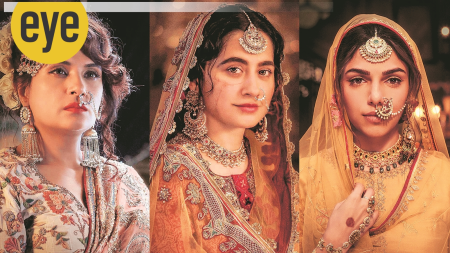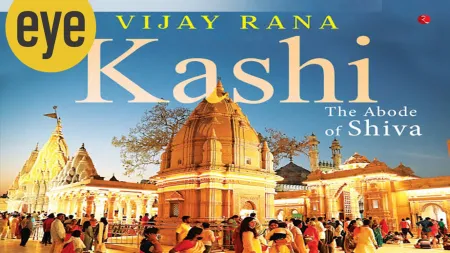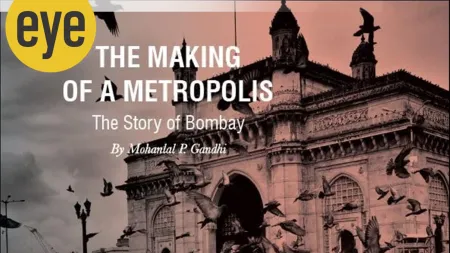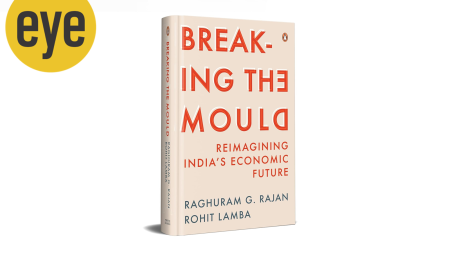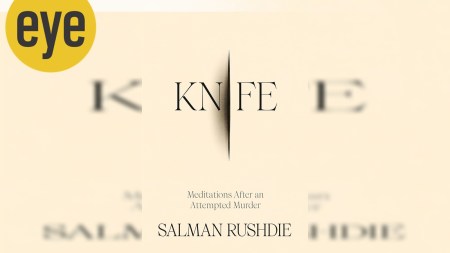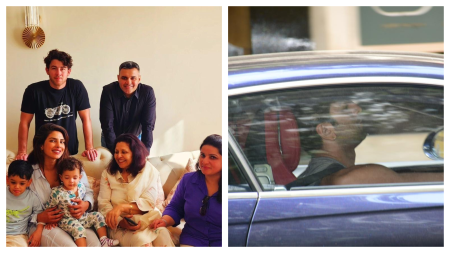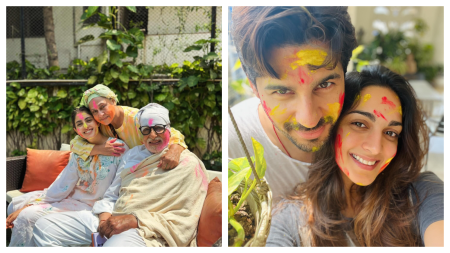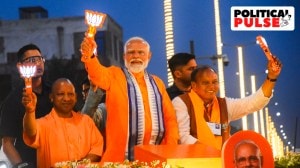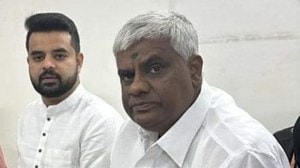- India
- International
Ae Watan Mere Watan: Heartbreaking, the worst film you’ve seen just made some strong political points
Post Credits Scene: Press freedom, ingrained conservatism, the generational divide... These are the progressive themes that the otherwise unwatchable Ae Watan Mere Watan tackles.
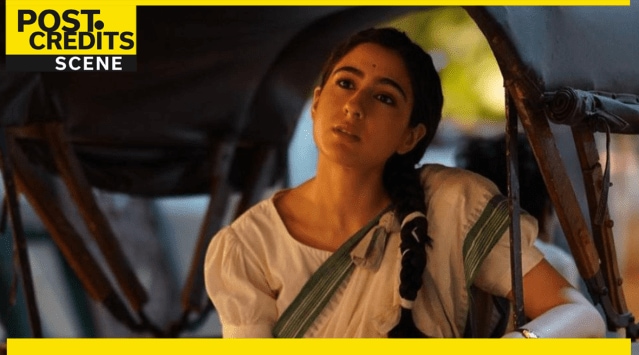 Sara Ali Khan in a still from Ae Watan Mere Watan.
Sara Ali Khan in a still from Ae Watan Mere Watan.In the rare promotional interview where she wasn’t talking about yet another image makeover, Sara Ali Khan said that her new film, Prime Video‘s Ae Watan Mere Watan, isn’t so much a biopic of freedom fighter Usha Mehta as it is a tribute to her spirit. “It’s very difficult to put ourselves in that ideological and geographical time frame,” she told Film Companion. “We’re free citizens. The stakes and the scenario of that time is so different to today.” Now, Sara could simply be playing it safe because she didn’t want to say something that would get her in trouble, but in doing so, she allowed herself to be accused of magnificently misinterpreting her own movie.
For a second, however, let’s give her the benefit of the doubt; she is, after all, a history major. She must know that Ae Watan Mere Watan serves as an alternative to the increasingly toxic stream of irresponsible, irredeemable, and in some cases, downright criminal propaganda movies that her peers seem to have dedicated themselves to producing in this election year. Despite the poor direction, writing that could be improved by third-graders, and tragically inept performances from practically everybody on the roster — Sara in 2024 is already giving early-pandemic Taapsee Pannu — the sneakily progressive Ae Watan Mere Watan is about the vitality of press freedom in authoritarian times.
Unfolding like that legendary “Heartbreaking: The Worst Person You Know Just Made A Great Point” meme, Ae Watan Mere Watan is inspired by (not based on) the life of Usha Mehta, who, along with her activist friends, was instrumental in founding the underground Congress Radio during the Independence movement. Spurred on by the teachings of Mahatma Gandhi and fuelled by a stubborn desire to rebel against her British sympathiser father, Usha’s story is not only timeless, but it is clearly also a metaphor for what is happening in our country today.
Political differences with her father — a judge who seems to be on the perpetual verge of bursting into song about Winston Churchill — push Usha to join protest marches in and around Mumbai. She is usually accompanied at these demonstrations by her two friends, Kaushik and Fahad. But when they’re all thrashed by the police at a Quit India Movement rally, they pick themselves up with renewed energy and declare that it’s time to ‘do or die’ (and, for reasons unexplained, go celibate).

How common is it for the youth of India to be at constant odds with the generation that has put us in this predicament? It’s an idea, and perhaps even a lived experience, that should be instantly relatable to a large section of this movie’s core audience. But Usha’s arguments with her dad are written in such a bafflingly stilted manner that you’re more likely to be stifling guffaws instead of containing your outrage. “Usha, kasam kha Congress ki gatividhiyon se tera koi lenadena nahi hai,” her dad says manipulatively in one scene, and then, “Mera man vichlit ho raha hai.” Later, after catching her red-handed as she returns home at the crack of dawn after a entire night spent protesting, Usha’s dad locks her in her bedroom and forbids her from going to demonstrations ever again. This scene, believe it or not, plays like Usha has just been spotted sneaking into her house after a night out with her boyfriend.
But the only man she has any sort of love for, much to Kaushik’s envy, is Gandhi. For Ae Watan Mere Watan to present the Father of the Nation in such an unambiguously flattering light is an act of rebellion in itself. This, unfortunately, is where we are now. The movie serves as a very basic reminder of the Congress party’s contributions to the freedom struggle, at a time when there is an increasingly confounding case being made for the RSS and Gandhi’s assassin, Nathuram Godse. “Zaruri nahi hai ke jo baat satya ho, woh sahi bhi ho. Main bas itna jaanta hoon ki hum sahi hain. Lekin Gandhiji satya hain,” says Ram Manohar Lohia, who becomes a mentor to Usha and her friends after they launch their clandestine radio station. Usha is concerned if the violence that her nightly broadcasts have incited against the British violates the Gandhian principles that she has lived by.
Read more – The Archies: Zoya Akhtar’s politically-charged film will be triggering for the Animal army
But like any liberal-minded entity keen to examine one’s own biases, the movie is also quick to highlight the perils of blind faith. “Tu uss aadmi ki andh bhakti karta hai jo khud andhbhakti ke khilaf hain,” Kaushik tells Fahad after noticing the tenor of his borderline sycophantic rhetoric. And on a socio-political level, Ae Watan Mere Watan is, regardless of its amateurishness, a movie that spotlights a woman who carved her own niche as a freedom fighter in a sea of aggressive men. Inequality never goes out of fashion, and the context of Usha’s fight, despite what Sara said in that interview, isn’t too far removed from what the young women who fronted, say, the Shaheen Bagh protests might have experienced, especially when it came to disseminating information through a media infrastructure that has all but conceded defeat.
Not too many movies are willing to address these themes, and those that do — Tiger 3 and The Archies are fine recent examples — are dismissed on nonsensical grounds such as nepotism, or are spoken about in reductive terms. But contrary to what happened with those films, which were made victims of audience sentiment, Ae Watan Mere Watan only has itself to blame. Forget Sara and the movie having to defend themselves against right-wing attacks (that never came), Ae Watan Mere Watan essentially disarms its would-be adversaries, pats itself on the back for its quick reflexes, and shoots itself in the foot with the same gun.
Post Credits Scene is a column in which we dissect new releases every week, with particular focus on context, craft, and characters. Because there’s always something to fixate about once the dust has settled.
Click for more updates and latest Bollywood news along with Entertainment updates. Also get latest news and top headlines from India and around the world at The Indian Express.
Photos
Apr 28: Latest News
- 01
- 02
- 03
- 04
- 05




